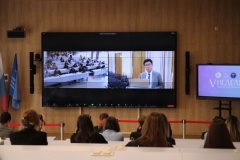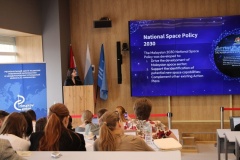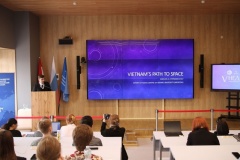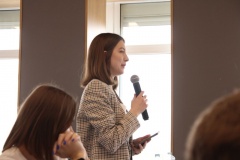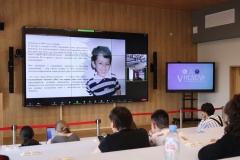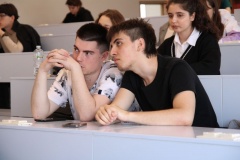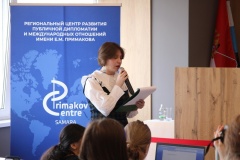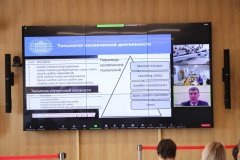A meeting of the section “Problems and Prospects of Space Diplomacy” was held within the framework of the II Day of the “V Week of Russian Diplomacy”.
The first speaker was Kira Tabunova , an expert at the ASEAN Center at the MGIMO Ministry of Foreign Affairs of Russia. The expert gave a lecture on the topic “Malaysia: the way to space”. A brief historical digression was conducted, the successes and prospects of Malaysia in the space sector were highlighted. It was mentioned that the country has adopted a national space policy until 2030, which is designed to stimulate the development of the space industry.
The next speaker with a lecture on the topic “The role of Myanmar in the future of outer space” was the Deputy head of the Department of Remote Sensing Technology of the Center for Information Science and Satellite Technologies of Myanmar, Ph.D. of Engineering Sciences Aung Myo San. He noted the following:
“As part of the development of human resources, our center is interested in cooperating with other aerospace organizations and universities in conducting educational courses.”
Then the expert of the ASEAN Center at MGIMO, Mikhail Stepanishchev, told about the Vietnamese way into space. It was noted that Japan is now the most important partner for this country. As the speaker noted, Vietnam is interested in investments for the development of the space sector.
After a short break, we moved to Latin America. Egor Simanov, a researcher at the Center for Political Studies at the Institute of Latin America of the Russian Academy of Sciences, made a report on the topic “Space Panorama of Latin America”. The expert clearly demonstrated on tables and diagrams the main indicators of the development of the Latin American region in the space sector. He noted:
“Brazil, which has great achievements relative to other states in the region, Argentina, as well as Peru, are the countries that have the greatest potential in the development of the space sector in Latin America.”
The next speaker was Nikolay Frolov, Ph.D. of Engineering Sciences, Director of the Center for Scientific, Technical and Innovative Cooperation with Ibero-American Countries at Southwestern State University. He said that the university has launched about 20 satellites in recent years together with the Peruvians. The expert believes:
“Peruvians are aware of our country’s contribution to the space sector and this can be seen as the use of “soft power” in diplomacy.”
After Latin America, we moved to Africa. Andrey Tokarev, Ph.D. in History, Head of the Center for Southern African Studies at the Institute of Africa of the Russian Academy of Sciences, made a presentation on “Space Plans of Africa”. Andrey Tokarev expressed gratitude for holding such a useful event and congratulated those present on the last International Cosmonautics Day. In his lecture, the expert focused on such an amazing African country as Angola, which has recently become a shining example of a successful state in the space sector.
The next speaker with the report “Space – the sphere of international cooperation or competition?” was Alexander Titkov, senior analyst of the special project “University Science” of the media group “Russia Today”. The speaker spoke about examples of cooperation between Russian universities and other states:
“There is competition in space, but I would like to note that cosmonautics arose from an aggressive topic — launching an atomic bomb from earth, but as a result, in our era it has become the sphere of greatest cooperation between countries.”
Moussa Hosinou, a graduate student at MIPT from Algeria, noted:
“Algeria has created for me the foundation of my goal-setting and character. And in Russia I got new knowledge, unlimited opportunities for self-realization. This explains my willingness to serve the cause of space exploration in the interests of Russia and Algeria, friendly countries that have given me so much.”
Bethlehem Nigussi, Deputy Director General of Space Science and Geospatial Institute from Ethiopia, concluded the day with her speech. During her speech, she showed a fascinating video about technological development in the Ethiopian space sector, and also gave a positive assessment of the prospects for the development of cooperation between Russia and Ethiopia in space exploration.
Photo: Alina Kavtaskina (Photo Club “Illuminator” named after V.A. Kakovkin)


